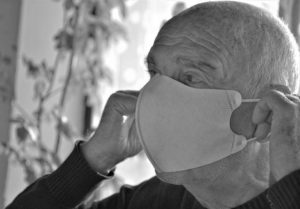
Liability shields for nursing homes and long-term care facilities protect against civil liability for some resident injuries and deaths related to COVID-19.
Are Nursing Homes Liable for COVID-19?
When the COVID-19 pandemic started to spread across the country, many states enacted liability shields for healthcare providers, medical facilities, and nursing homes. These shields provided protection against liability and civil lawsuits for injuries and deaths related to COVID-19.
Since the onset of coronavirus, nursing homes and long-term care facilities have experienced a high rate of COVID-19 illnesses and deaths. In June, Illinois nursing homes accounted for 53% of COVID-19 deaths. In October, 5,000 Illinois nursing home residents died from COVID-19. Due to advanced age, underlying health conditions, and immune deficiencies, nursing home residents are particularly vulnerable to airborne illnesses, infections, and diseases.
Currently, over half of all states have enacted some form of liability safeguard for nursing homes and long-term care facilities. Governors in six states – Arizona, Connecticut, Illinois, Michigan, New Jersey, and New York – have issued executive orders protecting healthcare facilities and nursing homes from civil liability for the injury or death of COVID-19 patients in their care. Most of these executive orders were made retroactive to the beginning of March when COVID-19 was declared a public emergency.
Liability shields for nursing homes provide immunity from civil liability for damages caused by acts of omissions undertaken in good faith while providing COVID-19 care. However, acts or omissions that constitute intentional malice, willful misconduct, and gross negligence are excluded. Civil liability for these actions can be pursued by filing a personal injury lawsuit with a nursing home lawyer.
Nursing homes that have been granted immunity by state governments are in a strong position to challenge negligence lawsuits without proof. A plaintiff must show proof of nursing home negligence or misconduct that contributed to the resident’s COVID-19 injury or death. Without an experienced nursing home lawyer, negligence lawsuits can be difficult to prove even under normal circumstances. During the COVID-19 pandemic, it may be difficult for the court to rule on what might actually constitute gross negligence.
Liability shields are intended to protect nursing homes that make a good faith effort to comply with state and federal healthcare guidelines but are not able to prevent COVID-19 illnesses or deaths due to no fault of their own. This includes transmission by asymptomatic carriers, lack of available testing, and lack of proper PPE.

